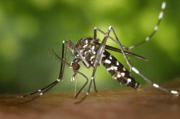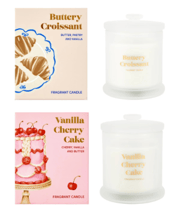Drink This Tonight to Slash Your Dementia Risk, Says New Study!
By
Seia Ibanez
- Replies 23
As we age, our health becomes an ever-increasing priority, and for many of us in the over-60s community, the threat of dementia looms as a particularly concerning aspect of getting older. It's a condition that can rob us of our memories, our independence, and our very sense of self. But what if there was something enjoyable we could do to help reduce the risk of dementia? According to a new study, there might just be a delightful answer: red wine.
The study, conducted by Queen’s University Belfast and published in JAMA Network Open, has reasserted the potential benefits of red wine, along with other flavonoid-rich foods and drinks, in reducing the risk of dementia. Flavonoids are naturally occurring compounds found mainly in plant-based foods, which are known for their antioxidant and anti-inflammatory properties. The research suggests that indulging in a glass of red wine, enjoying a cup of tea, or snacking on berries could lower the risk of developing dementia by as much as 28%.
This is particularly heartening news for those of us who appreciate the finer things in life, such as a good Merlot or a fresh punnet of strawberries. The study analyzed dietary data from over 120,000 adults aged between 40 and 70 years from the UK Biobank, providing a substantial evidence base for its findings.
While age and genetics are still the most significant risk factors for dementia, which is expected to affect around 153 million people globally by 2050, the influence of diet on reducing this risk cannot be ignored. The study's lead researcher, Professor Aedin Cassidy, pointed out that the benefits of a flavonoid-rich diet were 'most noticeable' in individuals with a high genetic risk for dementia, as well as in those showing symptoms of depression.
Dr. Amy Jennings, another researcher involved in the study, emphasized the importance of increasing daily consumption of flavonoid-rich substances, especially for those at higher risk of dementia. With no effective treatment currently available for the disease, preventative measures such as dietary interventions should be a major public health priority.
So, what does this mean for us? It's simple: incorporating more flavonoid-rich foods into our diets could be a key strategy in maintaining cognitive health. This doesn't mean we should all start drinking red wine in excess – moderation is key, as always. But it does suggest that enjoying a glass with dinner might not just be a pleasure, but also a proactive step towards preserving our mental faculties.
Of course, it's not just about the red wine. The study highlights the importance of a balanced diet that includes a variety of flavonoid-rich foods. Berries, apples, pears, and citrus fruits are all excellent sources, as are vegetables like onions, kale, and spinach. And let's not forget the humble cup of tea, a staple in many Australian households, which also packs a flavonoid punch.
As we navigate the golden years, it's encouraging to know that some of the things we enjoy can have such a positive impact on our health. So tonight, why not pour yourself a glass of red, brew a pot of tea, or snack on some berries, and toast to your brain health?

We'd love to hear from you, our Seniors Discount Club members, about your thoughts on this study. Do you already enjoy these flavonoid-rich foods and drinks? Will this information change your dietary habits? Share your experiences and tips in the comments below for maintaining cognitive health through diet. Cheers to your health!
The study, conducted by Queen’s University Belfast and published in JAMA Network Open, has reasserted the potential benefits of red wine, along with other flavonoid-rich foods and drinks, in reducing the risk of dementia. Flavonoids are naturally occurring compounds found mainly in plant-based foods, which are known for their antioxidant and anti-inflammatory properties. The research suggests that indulging in a glass of red wine, enjoying a cup of tea, or snacking on berries could lower the risk of developing dementia by as much as 28%.
This is particularly heartening news for those of us who appreciate the finer things in life, such as a good Merlot or a fresh punnet of strawberries. The study analyzed dietary data from over 120,000 adults aged between 40 and 70 years from the UK Biobank, providing a substantial evidence base for its findings.
While age and genetics are still the most significant risk factors for dementia, which is expected to affect around 153 million people globally by 2050, the influence of diet on reducing this risk cannot be ignored. The study's lead researcher, Professor Aedin Cassidy, pointed out that the benefits of a flavonoid-rich diet were 'most noticeable' in individuals with a high genetic risk for dementia, as well as in those showing symptoms of depression.
Dr. Amy Jennings, another researcher involved in the study, emphasized the importance of increasing daily consumption of flavonoid-rich substances, especially for those at higher risk of dementia. With no effective treatment currently available for the disease, preventative measures such as dietary interventions should be a major public health priority.
So, what does this mean for us? It's simple: incorporating more flavonoid-rich foods into our diets could be a key strategy in maintaining cognitive health. This doesn't mean we should all start drinking red wine in excess – moderation is key, as always. But it does suggest that enjoying a glass with dinner might not just be a pleasure, but also a proactive step towards preserving our mental faculties.
Of course, it's not just about the red wine. The study highlights the importance of a balanced diet that includes a variety of flavonoid-rich foods. Berries, apples, pears, and citrus fruits are all excellent sources, as are vegetables like onions, kale, and spinach. And let's not forget the humble cup of tea, a staple in many Australian households, which also packs a flavonoid punch.
As we navigate the golden years, it's encouraging to know that some of the things we enjoy can have such a positive impact on our health. So tonight, why not pour yourself a glass of red, brew a pot of tea, or snack on some berries, and toast to your brain health?
Key Takeaways
- Consuming foods and drinks high in flavonoids, such as red wine, berries, and tea, can significantly reduce the risk of dementia according to a new study by Queen’s University Belfast.
- The study found that increasing the intake of these flavonoid-rich items could lower the risk of dementia by up to 28%, and the findings were published in JAMA Network Open.
- The research drew on data from a cohort of 120,000 adults aged between 40 and 70 years old from the UK Biobank.
- The study highlights the importance of diet in reducing the risk of dementia, particularly for those with high genetic risk and symptoms of depression, and emphasises the need for preventative public health interventions due to the lack of effective treatments for the disease.
We'd love to hear from you, our Seniors Discount Club members, about your thoughts on this study. Do you already enjoy these flavonoid-rich foods and drinks? Will this information change your dietary habits? Share your experiences and tips in the comments below for maintaining cognitive health through diet. Cheers to your health!








